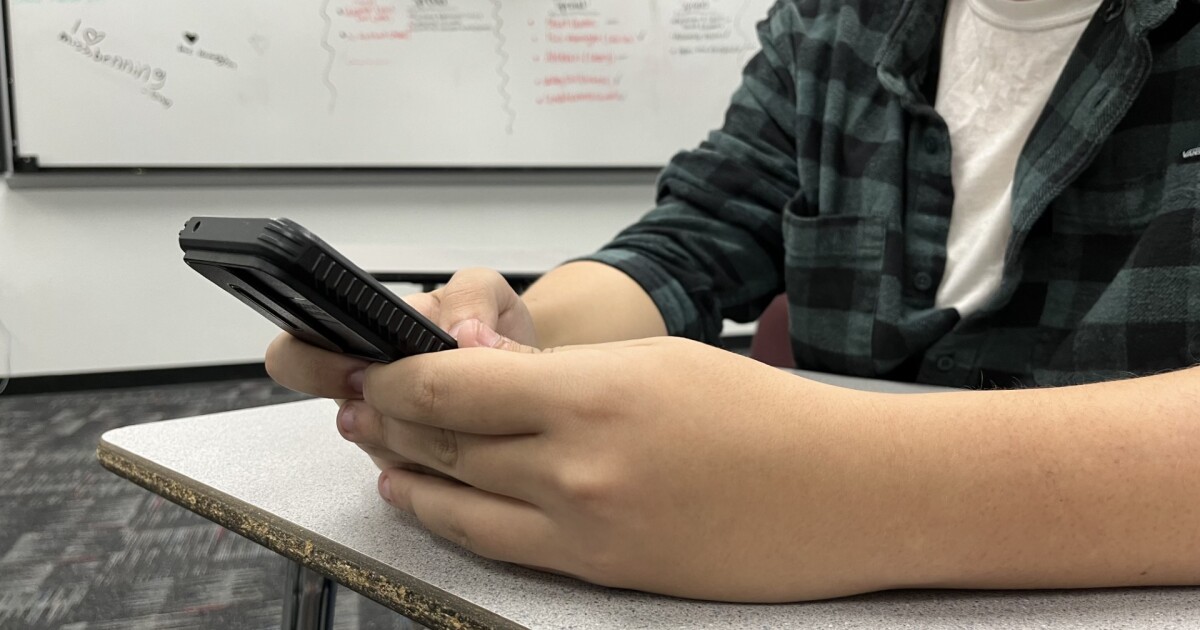The U.S. Department of Education is calling on states, school districts, and schools to adopt policies regarding student use of cell phones in schools.
“In this digital age, every elementary, middle, and high school should have a clear, consistent, and research-informed policy to guide the use of phones and personal devices in school,” said U.S. Secretary of Education Miguel Cardona.
Along with the call for policy adoption, the department released a new guide aimed to help guide school officials as they work to put cell phone use policies in place.
“I want our department to be a resource to school leaders,” Cardona said. That is why we are issuing a new guide to help support education officials and local communities in developing policies that are understandable and enforceable, and prioritize learning while ensuring student safety.”
While the department acknowledges that cell phones can play an important role in helping keep parents in contact with their children, especially during emergencies, they say there is a growing body of evidence that is cause for concern about the impact of cell phones in schools on students.
The Apache Junction Unified School District started its own cell phone policy this school year, telling students they need to have their cell phones away in their backpacks or purses while in class. Students are allowed to have them during passing periods and lunch.
“I feel like our school is doing it almost perfect, like you can have it during passing periods and you can have it during cafeteria time and whatnot,” said Apache Junction High senior Riley. “As long as you don’t have it out during class, you’re good I feel like that’s the best way to do it.”
However, both Riley and junior Prescila say students were not happy with the new policy in the beginning. But, the two students tell ABC15 they are seeing differences in the classroom.
“A lot of students are still very upset about it but personally I like to see the cell phone policy because you see students interacting more with their teachers, interacting with other students and focusing more in class,” Prescila said.
There are consequences if students have their phones out in class. Apache Junction High Principal Lisa Ginn said students first get a warning. If they don’t comply, then the phone can be confiscated and given to the front office for the student to pick up at the end of the school day. If it comes to it, Ginn said the school will then involve parents.
“Every week, we take one to two [cell phones]. It’s not as often as it was in the beginning of the year. It’s not happening that much anymore,” Ginn said.
Superintendent Robert Pappalardo said this school year, they’ve had zero students get assigned to the alternative school. Pappalardo said usually, if a student needs to be disciplined further, they have to go to an alternative school before coming back to the regular high school. He believes eliminating the distraction of cell phones helped with student behavior.
“Students are basically following the rules, getting along with one another, not doing things that would get them into trouble, where we would say we need to put you in another place for a period of time for you to earn your way back to regular school,” Pappalardo said. “Because the culture on the campuses have changed.”
Ginn personally believes policies surrounding cell phone use should’ve been in place sooner.
“It is the best thing we can do for teenagers today. The teenagers… they have too much anxiety with what’s going on in their phones during the day,” Ginn said.
The Dysart Unified School District currently has a committee looking into cell phone use in schools. Other districts like Mesa Public Schools do have them as well, but it varies from district to district, and not all will follow suit.


